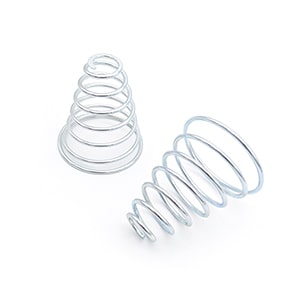Get unique, complex parts easily. No matter your requirements, Chaoyi Spring creates hard-to-produce coil springs and wire forms.
Let us help you create the custom wire form you need, from S-hooks and J-hooks to utility hooks and more.
We work closely with customers across a wide range of industries, helping them design and manufacture made-to-order parts.
Why choose Chaoyi Spring? We prioritize customer-focused collaboration, modern equipment and the latest technology to make your parts per print.
Find the information and guidance you need, from measuring a spring to learning about materials, placing an order and much more.
When it comes to garage doors, the springs are essential for smooth, safe, and reliable operation. There are two main types of springs used in garage doors: torsion springs and


When it comes to garage doors, the springs are essential for smooth, safe, and reliable operation. There are two main types of springs used in garage doors: torsion springs and tension springs. Both types have their pros and cons, and choosing the right one for your garage door depends on several factors, such as the size and weight of the door, the space available above the door, and your budget. This article will delve into the differences between torsion springs and tension springs to help you make an informed decision for your garage door.

Torsion springs are the most common type of spring used in modern garage doors. They're located above the door, typically mounted on a shaft. As the door opens, the torsion spring unwinds, providing the force needed to lift the door. When the door closes, the spring winds back up, lowering the door smoothly.
Advantages of Torsion Springs
Disadvantages of Torsion Springs
Tension springs are usually located along the sides of the door, near the track. As the door opens, the tension springs stretch, providing the force to lift the door. When the door closes, the springs contract, lowering the door.
Advantages of Tension Springs
Disadvantages of Tension Springs
The choice between torsion springs and tension springs depends on your specific needs and circumstances. Here's a breakdown to help you decide:
Remember, it's always best to consult with a professional garage door technician for an accurate assessment of your specific garage door needs and to ensure the right springs are chosen and installed correctly.
In conclusion, both torsion springs and tension springs have their own merits and drawbacks. Understanding the key differences between the two can help you make an informed decision that best suits your garage door needs, budget, and safety concerns. For optimal performance, safety, and longevity of your garage door, it's always a wise choice to consult with a qualified garage door professional for guidance and installation.
Browse some of the custom wire forms and springs that we manufacture. Don’t see what you need? We specialize in made-to-order products that meet your application requirements.
Visit Our GalleryNeed a custom wire form or coil spring? We make it work. Fill out the contact form and a representative will respond within 1 business day. If you have a PDF or CAD file, you can submit to request a quote.